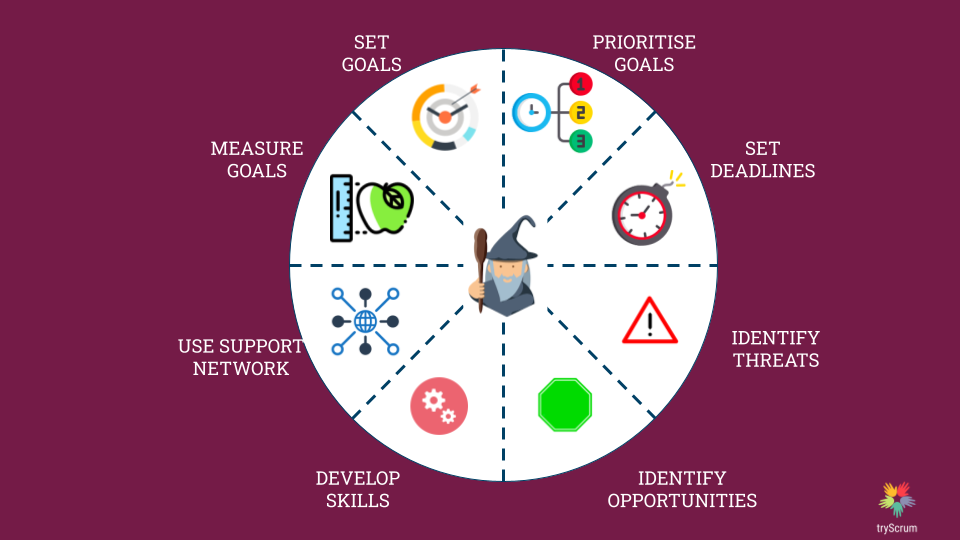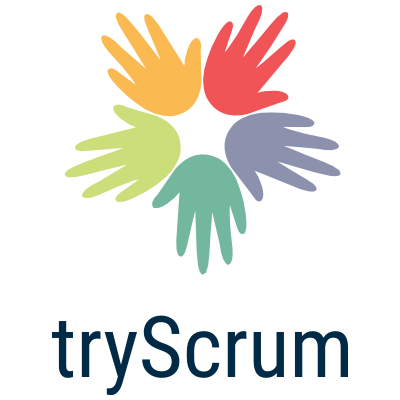Are you interested in becoming a Scrum Master, but you are yet to have any experience?
People frequently ask me – if I don’t secure a job, how will I gain experience?
In the last seven years, I have assisted several interested and enthusiastic professionals to become Scrum Masters. In fact, in my first job, at Hewlett Packard, I was a Software Engineer. After that, I gradually elevated to the role of a Scrum Master.
In this blog, I will share my valuable experience in my journey toward becoming a Scrum Master. I would also share stories of various professionals, including women, who successfully got a Scrum Master’s job even after a career break.

The tips and strategies I will share helped several professionals understand both the fundamentals and experience of the Scrum Master’s role. Moreover, various professionals also experienced the essence of these concepts in their professional lives.
They became more confident in their job search, presenting themselves as better, more deserving candidates.
The job of a Scrum Master is both exciting and challenging. Once you take this journey seriously and succeed in an assignment, you would be content with the results. It makes me genuinely satisfied, as I have inspired some talented people with my experience. So, coming back to the core question – How is it possible to get the job of a Scrum Master without relevant experience – I would like to share ten valuable tips that effectively help you get the desired results.
A known devil is better than an unknown angel.
A highly productive first step is nurturing the willingness to experiment by finding the most appropriate opportunities under your current company. Next, you need to be straightforward and request your employer about playing the role of a Scrum Master, getting associated with one of the teams.
You have to locate a team that is new to the Agile framework and try out few things such as:
- Introducing the fundamental ideas of Sprint
- Practising various Facilitation techniques to facilitate different Scrum events
- Showing the stakeholders the functionalities and attributes of working software and getting their feedback
- Introducing the concept of Scrum Board
- Implementing a set of modern techniques to facilitate retrospectives
When you experiment with the activities mentioned above and strategies, you can obviously mention the details on your resume, enriching it.
Pen down a Plan for Personal Development
After you have already experimented with a few basic Scrum techniques, it is essential to visualise personal development properly. For example, after a couple of years, you would like to be in a Scrum Master’s role, helping your Organization radically re-imagine the kind of work done. A clear, crisp and well-designed plan is also vital for your mental health in the long run, which would help you progress further in your career.
Under the personal development plan, you can consider:
- Setting clear goals for yourself
- Smartly prioritising those goals
- Marking the deadlines for achieving the set goals
- Recognising threats, along with opportunities
- Constantly developing your skills and expanding your knowledge
- Utilising the support network you have
- Measuring your progress
Your CV is hugely important – start building it
There is no need to panic if you don’t have any significant experience as a Scrum Master. But, it is pretty essential to particularly highlight the contributions you have made in various Agile teams.
For example, you can mention how the team benefitted from your practices.
My experience from the fields
“I had started my professional career as a Software Engineer. To my employer, I had expressed my clear and honest intentions to work in different Scrum teams. I expressed my interest to become a full-time Agile team member. I gradually learned the fundamental practices of Scrum. In my next job, I applied some of the Scrum practices that I could pick up. That was a genuinely defining moment for me, as an aspiring Scrum Master.”
It is highly essential to project your experience as a member of the Scrum team. Mention in your CV the exact practices that you had employed in the Scrum team. Talk about how did you slowly seed your thoughts in teams. Also, keep in mind not to falsify facts in your resume. Mention precisely the scrum practices you did and not the ones you did not.
Get appropriate training and get certified.
Earning too many certificates is not the answer to every question. Personally, I don’t vouch for it. But, acquiring a recognised credential certainly indicates two main things:
- Strengthening the fundamental knowledge you possess
- Creating a learning mindset by investing productively in yourself
I would recommend receiving a certificate from Scrum.org (PSM).
Some many other organisations and institutes provide certificates on Scrum. I don’t recommend any of those. It would be best if you were alert from being tricked by an impostor. When searching for an experienced trainer, you need to connect with someone who has previous work experience as a Scrum Master.
Writing a Resume
This could be the trickiest part of your preparation. You have to ensure that your application, rather CV, gets shortlisted for the role of Scrum Master in a company that you have targeted. Moreover, companies nowadays rely on advanced software that screens resume. Hence, you have to take a highly pragmatic and professional approach.
You need to ensure highlighting some essential keywords while writing your resume, such as ‘Scrum Master’, ‘Facilitation’, ‘Retrospectives’, ‘Agile Teams’, ‘Metrics’, ‘Coaching’, etc.
Most modern software tools and products, including LinkedIn, will scrutinise and scan the resumes based on these keywords. So keep in mind to logically connect all these terms in your resume. Also, don’t forget to highlight some key contributions in your resume.
Doing all these things would increase the probability of your resume getting shortlisted.
Focus on the question – Why an employer should hire you?
Given all other achievements and qualities are on the same platform, a person with more experience would definitely get hired as a Scrum Master. However, since you lack that experience, you have to innovatively highlight your attributes and stints relevant to the role you are applying for, making you a perfect fit.
For example, suppose you are applying to the E-commerce industry for the role of Scrum Master. Accordingly, you need to demonstrate your qualities and experience relevant to that specific industry. You can also highlight pertinent blogs you have penned for clients. It is also acceptable to mention a community event that you have organised or facilitated.
Finding volunteering opportunities in communities
If you cannot get enough relevant opportunities under your employer, you need to search for volunteering opportunities in various communities.
This could be a non-profit at the regional or national level.
At tryScrum, our trainers were once community members. They began their journeys as members of our Studios before they became full-time Scrum trainers. Community forums help you in building a network among several Scrum Masters.
45% of all your opportunities will be from networking and relevant communities (Source: ‘The Stages of Scrum Mastery research’).
You have to become creative to gain experience. I have known people who struggled in the initial stages but never gave up, ultimately achieving the position of a Scrum Master.
Your Network is Your Networth
It is considered that good networking gets you the job that you are desiring and searching for. However, it is also a matter of luck – being present at the right spot, with the right people and at the right time.
Keep in mind that if getting your current job requires networking, then certainly getting a Scrum Master’s job would require even more vital networking.
Ensure that your colleagues and close friends know very well about your job search intentions. In addition, try to utilise the potential of various groups, forums and professional networks.
Be Patient
Patience is undoubtedly a valuable virtue. In conclusion, I would always say you remain patient in your job search. Shifting to an entirely new position in your professional career could take some time. Therefore, you have to be persistent.
More Readings
Numerous organisations can help you get valid certificates and help you build an illustrious career. Remember that you have to keep on learning and expanding your knowledge relentlessly. You can explore the following:
- Scrum.org (PSM II / PSM III)
- ICAgile (ACC or ENT or CAT)
- ICF (ACC / PCC)
- CPCC (Co-active Coaching)
What could I have covered in this blog which I didn’t cover? Could you please post your suggestion as comments?
Best of luck!
tryScrum Community Opportunities
About tryScrum
tryScrum is a professional coaching and consulting company. The company aims to challenge prescience thinking, which will help in the process of transformation. The company has provided its course to over 3500+ individuals and still strives to deliver its services by offering elite leadership training and many other available fields.
For more information, please visit www.tryscrum.com.

